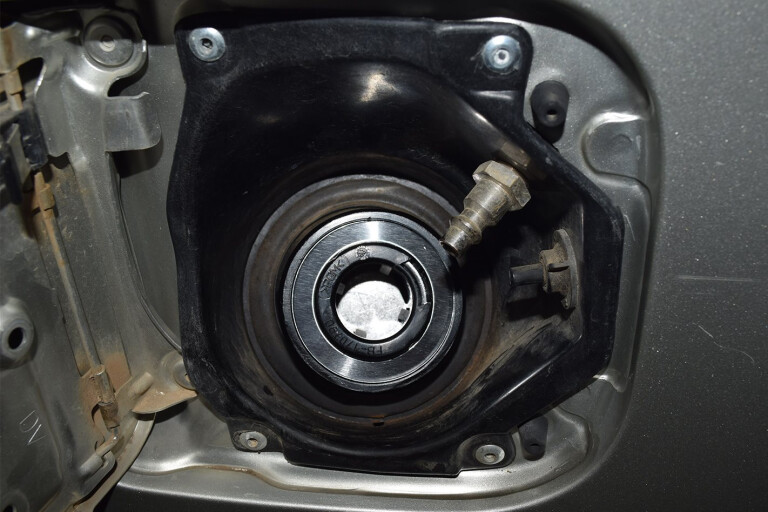
How many vehicles do you drive regularly?
Maybe you have a 4x4 for weekend adventures, a family runabout, your uncle’s old farm ute and the boss’s work trucks when you’re on the job. If this sounds like you, then you’re probably at risk of filling up one of these vehicles with the wrong fuel type.
A recent NRMA survey of more than 1300 motorists found that – at one time or another – almost a quarter of drivers have put the wrong fuel in the tank (and our local mechanic says its 50:50 blokes and women who are doing this).
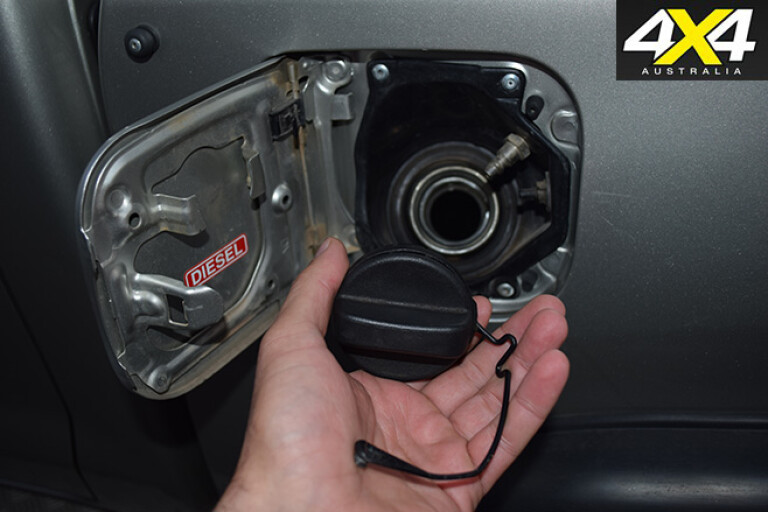
The biggest problem is that petrol is being put into diesel vehicles. That’s because diesel pumps have a 25mm spout (or bigger with high-flow pumps) that are too big for petrol vehicles inlets (most petrol models, by design, have a tank filler inlet which prevents the insertion of a nozzle spout with a diameter bigger than 23.6mm). But, on the flipside, there’s nothing to stop you pushing the petrol pump spout into your diesel inlet.
The risk of mis-fueling becomes real when you’re routinely dealing with multiple vehicles and/or unfamiliar vehicles. With a bit of inattention or distraction, you could soon be looking down the barrel of some costly damage.
If you realise what you’ve done before you start the vehicle, you’ll be up for the price of a tow to the nearest mechanic followed by draining of your fuel tank. This could easily cost $300 or more depending on where you are and how far you need to be towed.
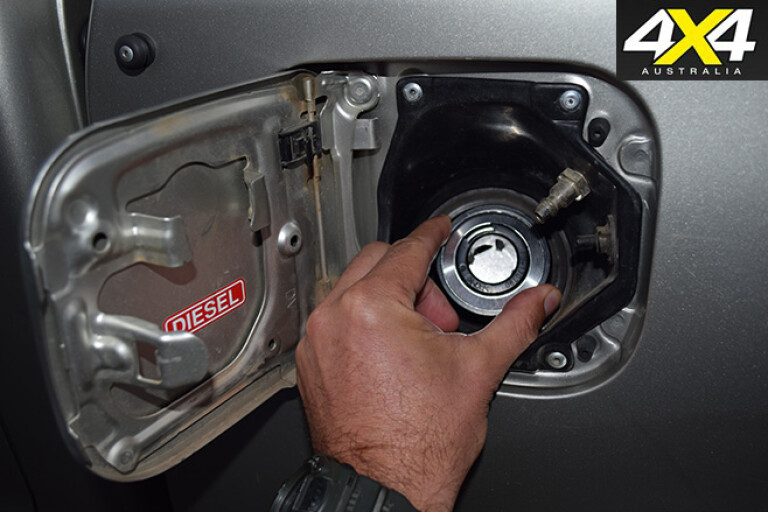
If you start your diesel engine with unleaded fuel in the tank (particularly with modern high pressure common-rail injection systems) you may need to replace your whole fuel system. Drive the vehicle any appreciable distance and it could cost $10,000 or more to repair, depending on your vehicle make/model and for how far you drove it before you noticed your mistake.
That’s why the Diesel Key has been invented. It’s a UK design that’s been available in Europe for some time. It’s just recently come to Australia and it’s distributed by Responsive Engineering Australia and Water Watch. Diesel Key, when correctly fitted, prevents the wrong fuel being accidentally pumped into a diesel fuel system.
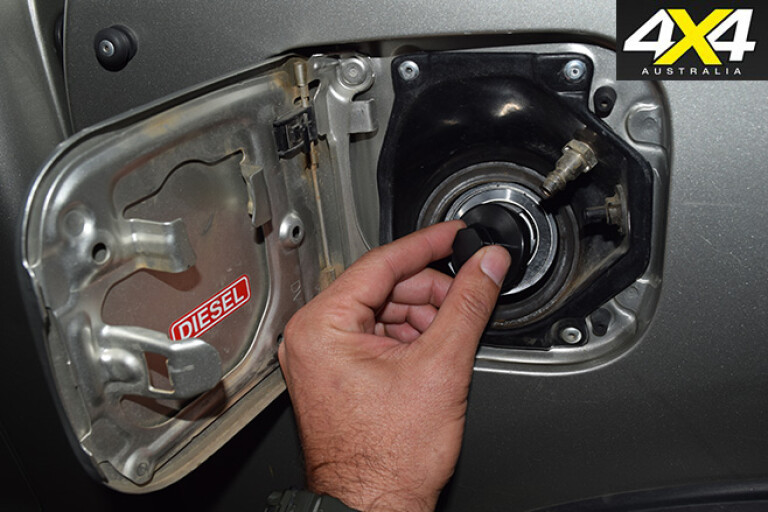
Diesel Key replaces the existing diesel filler cap. The device incorporates a metal plate which acts as a physical barrier to the filler inlet until you put a diesel pump-sized nozzle into it.
When you do this, the nozzle depresses the spring operated flanges around the inlet which allows the barrier to be released (which is also spring-operated to self close) allowing the spout to enter the inlet.
Another advantage is that the Diesel Key stops thieving scum from stealing your fuel if you don’t have a lockable filler cap. They simply won’t be able to get their fuel syphon hoses through the Diesel Key barrier. On the flipside, this could make filling from jerry cans or on-site pumps a problem so a suiatable funnel might need to be used.
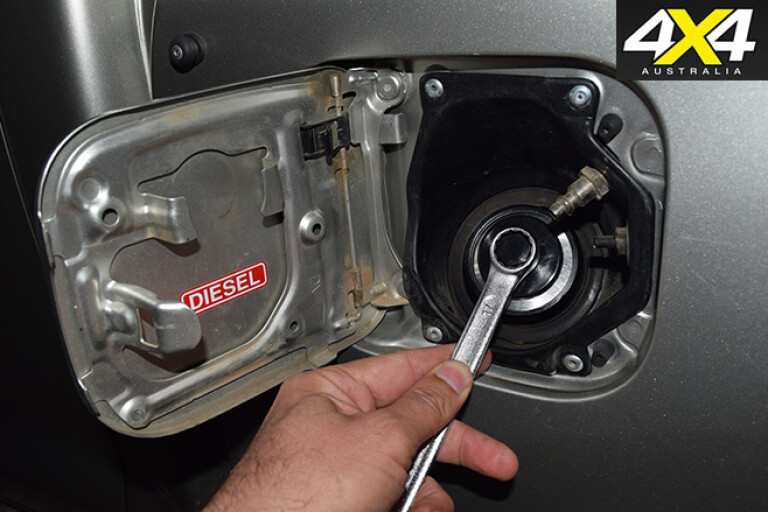
It’s easy to fit and comes in screw thread and bayonet lug models to suit different filler designs.
Diesel Key is designed to fit most vehicles on the market, but it’s best to get in contact with the distributors to confirm if there’s a model to fit yours. Some Range Rovers have factory-fitted anti-mis-fuelling filler necks, while some other 2014 and newer vehicle models already have a nozzle-restrictor fitted. Some others, such as a Jeep Grand Cherokee, don’t have a fuel cap at all on which to mount the Diesel Key.
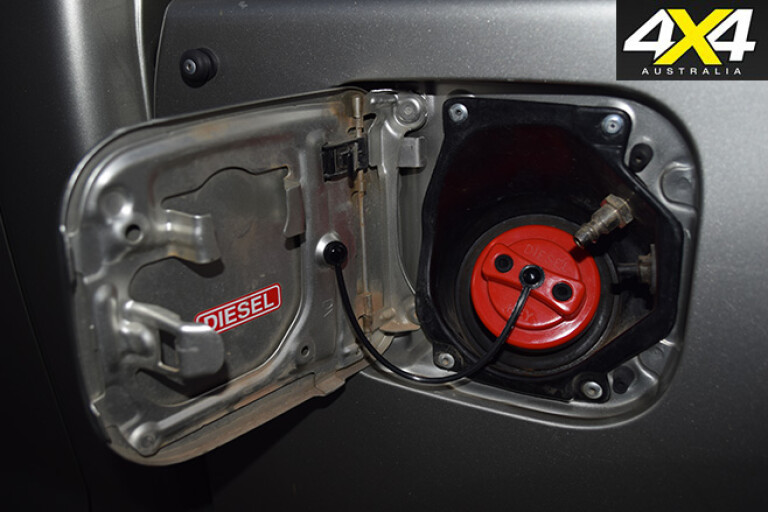
One negative of the Diesel Key that may be a deal-breaker for many diesel drivers is the fact it only suits small-nozzle diesel pumps; this prevents the use of high-flow fuel bowsers so filling takes longer. That can be annoying when you’re regularly filling a vehicle with 180 litres or more of fuel capacity.
For mixed vehicle fleets and vehicles that are driven by different personnel the Diesel Key might be a great idea.
RATED
Available from: Responsive Engineering Australia and Water Watch distributors.
RRP: $97 from Responsive Engineering website.
We say: Easy to fit and effective, but doesn’t allow high-flow fillers.

COMMENTS